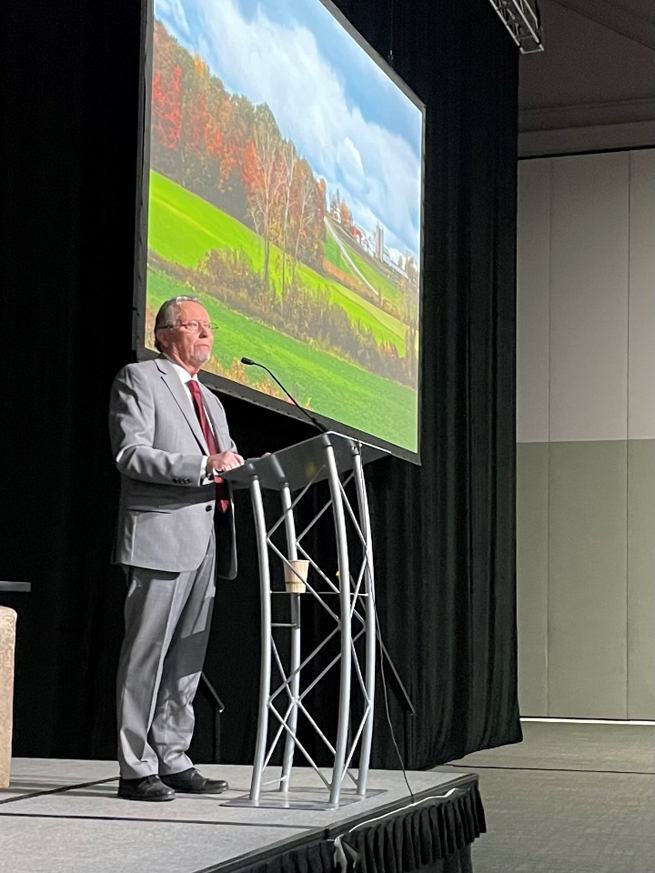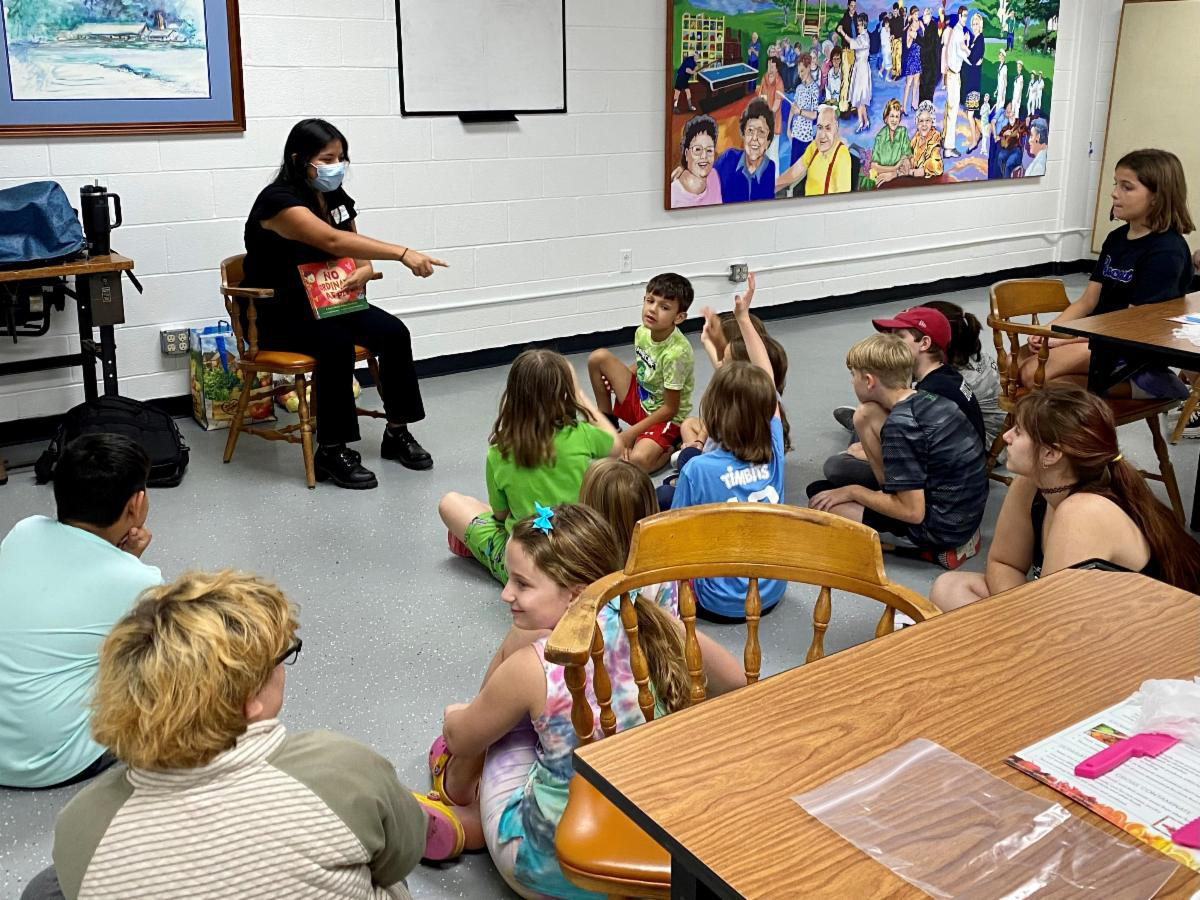The State of Agriculture in New York

New York State Agriculture Commissioner Richard A. Ball on January 11, 2024 delivered the State of Agriculture Address at the 192nd New York State Agricultural Society Annual Forum, outlining the progress made in 2023 and priorities for the agricultural industry in 2024. The Forum, which is traditionally the oldest and largest agricultural meeting of its kind in the state, took place at the OnCenter in Syracuse.
In keeping with this year’s Forum theme of “Harnessing Regenerative Business,” the Commissioner spoke about the State’s work to boost the agricultural industry and strengthen the food system while also combating climate change. The Commissioner outlined the State’s goals for the new year as part of Governor Kathy Hochul’s 2024 State of the State plan, which was announced recently and includes a number of new programs and initiatives to help grow the agricultural community and promote a more resilient future for the agriculture, food, and forestry sectors.
These include making $34 million in funding available for on-farm fluid milk storage technologies and processing infrastructure; $21 million for a new Alternative Waste Management and Enhanced Precision Feed Program to further the mitigation of agricultural greenhouse gas emissions; and key investments into the Eastern Finger Lakes Coalition of Soil and Water Conservation Districts to accelerate agricultural and resiliency-related projects on farms of all types. This will also include support for the use of more cover crops, to reduce runoff, and to improve soil health and reduce water quality impairments in the region.
Additionally, the State will provide increased support for agricultural education and agricultural workforce development, and will introduce new initiatives to safeguard public, plant, and animal health. The State will also focus on developing bio-production within the agriculture and forestry sectors and revitalizing New York’s aquaculture industry, ensuring New Yorker’s can access a wider range of local food while promoting a healthy climate.
“We are all working through a number of concerns and uncertainties, from disruptions in the marketplace and skyrocketing inflation impacting our farmers and the people we serve, to labor and immigration challenges, the ever-increasing threat of climate change, and everything in between. But I believe we were designed for such purposes, and no problem is too big for us if we work together. Where there are challenges, there are also opportunities for us to become stronger, more resilient,” said Commissioner Ball. “I feel fortunate to have a strong partner in our Governor who is working to find solutions and invest in them. We need to sincerely and consistently incentivize innovation in food and a strengthened food system, and I think you will see this in her priorities.”
In his address, Commissioner Ball also highlighted the Department’s continued work alongside its many partners to ensure a strengthened food supply chain through several programs and initiatives, including the Farmers’ Market Resiliency Grant Program; the Farm-to-School initiative; the 30% NYS Initiative; the FreshConnect Program; and the USDA-funded New York Food for New York Families program. Finally, the Commissioner spoke about the Department’s ongoing activities to promote New York producers through the Taste NY and NYS Grown & Certified programs and to continue its efforts to increase diversity and racial equity in New York agriculture.
A recording of the speech will be made available on the New York State Agricultural Society’s YouTube channel. A transcript of the Commissioner’s remarks as prepared can be found on the Department’s website at https://www.agriculture.ny.gov/2024-state-agriculture-address.
The New York State Agricultural Society Annual Forum brought together representatives from all sectors of the agricultural industry to discuss topics that are crucial to the future of New York agriculture. This year’s forum focused on innovations and opportunities in the regenerative agriculture space, including its ability to combat climate change and provide numerous additional benefits, such as improving soil health, increasing biodiversity, aiding in carbon sequestration, incorporating the humane treatment of livestock and farmworkers, and improving the overall ecosystem.
Provided information




